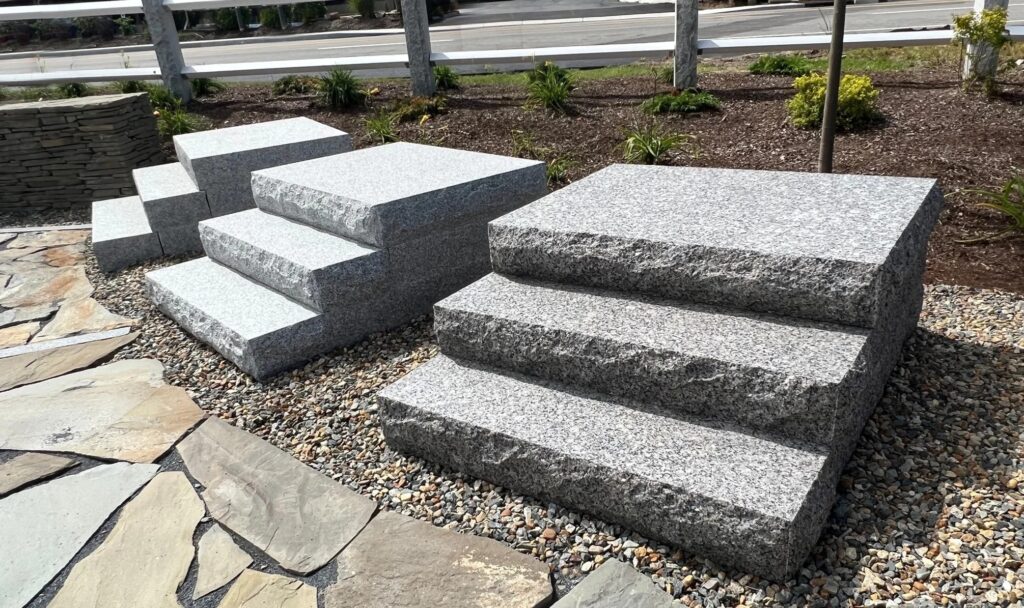Swenson Celebrates 140 Years of Being a Leader in the Natural Stone Industry

Pictured is John Swenson and family, circa early 1900’s.
For the rare business fortunate to make it so far, a 90th year in operation is known as a Granite Anniversary. Swenson Stone Works surpassed that milestone 50 years ago this year and is still going as strong as its first quarry in Concord, New Hampshire’s Rattlesnake Hill.
What’s the secret to Swenson’s 140-year run as an industry leader? Like the salt and pepper speckles in Swenson’s signature Concord Gray granite, it took a unique blend of attributes – parts innovation, immigration, diversification, and determination to name a few.
At the center of the company’s story is John Swenson, one of the most influential figures in the New Hampshire granite industry. Swenson was born in 1851 in Falkenberg, Sweden, and grew up on a small family farm. He set sail for bigger things in America at age 19, initially settling in New York City, where he met his wife, Ellen Anderson.
After a brief period living near family in Kansas City, the Swensons moved back east, this time to Concord. The city at that time was home to a large Swedish population that included Ellen’s brother, Ola Anderson, who owned a small but successful granite business. John took a job with Ola and learned the granite trade quickly, striking out on his own in 1883.
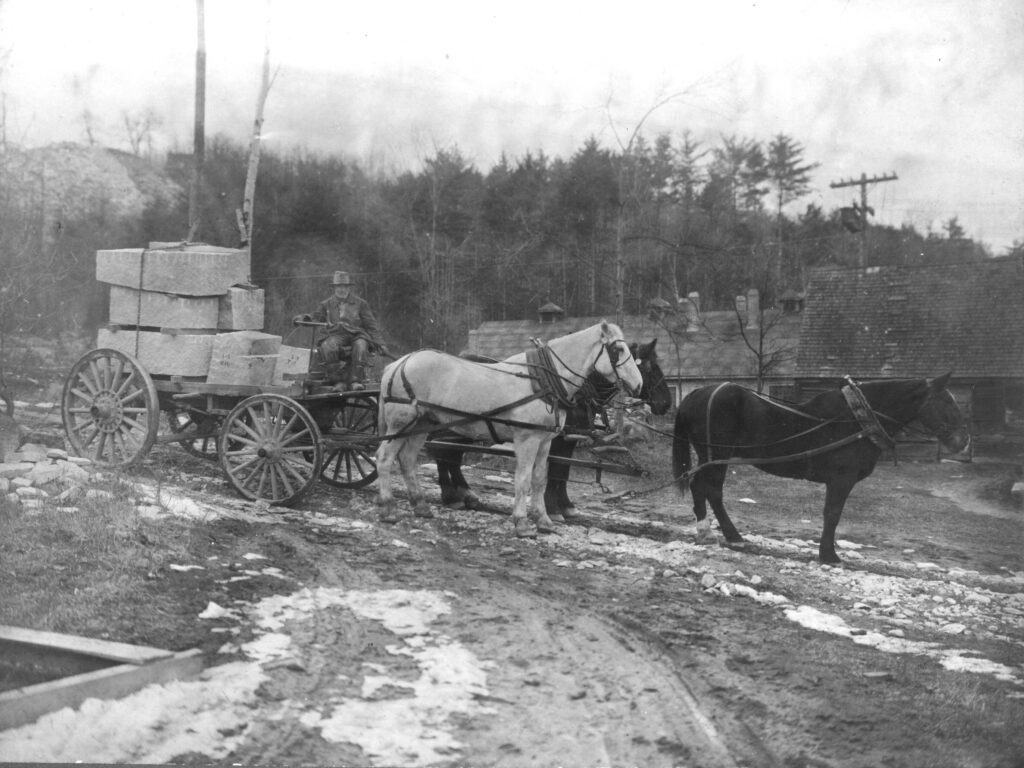
Workers hauling Concord Gray blocks down Rattlesnake Hill via horse-drawn wagon, circa early 1900’s.
In a journal article chronicling the history of Rattlesnake Hill, Industrial Archaeology recounted that Swenson purchased from another quarry operator “one polishing building with the engine shafting … one building used for an office with desk in same … one large square, two iron bars, one grindstone, two shovels and one derrick with the ropes and guy connected therewith.” The John Swenson Granite Company was born.
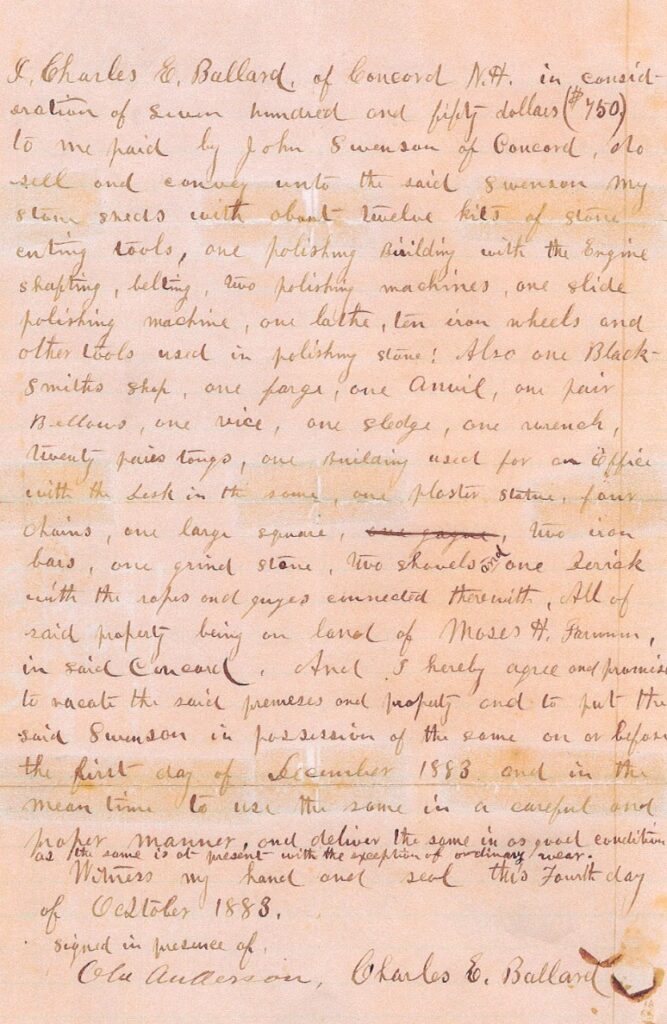
Swenson initially was one of nearly 50 small stone companies all quarrying granite from Rattlesnake Hill, regarded as the birthplace of the industry in New Hampshire. By World War II, the company had outlasted all of its local competitors and become one of the world’s largest natural stone suppliers.
Crews utilizing a wooden derrick to work a granite shelf in the quarry, circa early 1900’s.
The Stone that Built America
In its early days, Swenson and his counterparts produced granite for a variety of uses including monuments, building construction and pavement. If you put together a list of America’s most iconic granite structures of the late 1800s and 1900s, a strong percentage of them would have been built with Swenson products.
These prestigious projects include the Brooklyn Bridge, the Pentagon, the Tomb of the Unknown Solider, Civil War monuments from Gettysburg to Antietam, and the Library of Congress. The latter was built with 350,000 cubic feet of granite that was transported to Washington by 2,200 railway cars and remains the most monumental structure ever erected of Concord granite.

The Brooklyn Bridge, New York City.
Swenson supplied granite veneer to clad some of New York City’s most enduring landmarks, including the Waldorf-Astoria Hotel, Tiffany & Co., the Seagram’s building, the Ford Foundation, and the CBS Building (aka “Black Rock”). The steps of the St. Patrick’s Cathedral were also made of Swenson granite.
Construction practices changed around the time of the Great Depression, with natural stone being replaced by materials like concrete and steel. But when one door closed, the company saw another one open and drove on through it. The rise of the automobile and Interstate Highway System boom created a need for its own materials and Swenson filled the gap, pivoting its focus to manufacturing granite curbing, a more durable and long-lasting alternative to concrete.
“Swenson has always been vigilant in recognizing new trends, such as transitioning from monument production to full-thickness building stones until concrete became a less costly alternative. Swenson adapted once again by producing thin building cladding for use in skyscrapers,” Swenson Granite Works Director of Retail Operations David Duford said. “In the mid-twentieth century, Swenson moved to granite curbing production, which remains a solid business today.”
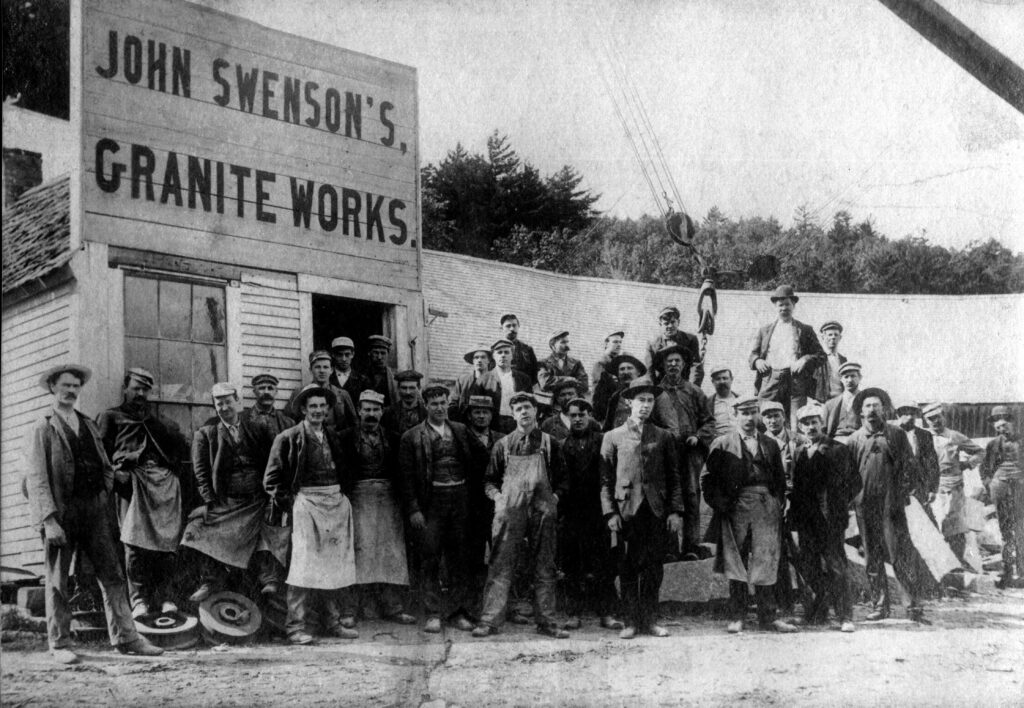
Crew outside a Swenson cutting shed. Swenson employed up to 200 men in the early 1900’s.
Innovating for Safety and Quality
In an age when companies were notoriously indifferent to worker safety, Swenson was once again ahead of its time. While the dangers of moving massive pieces of stone and working with stone-cutting equipment were apparent to workers, another silent killer was in the air they breathed.
“Among the many occupational hazards faced by granite workers was a chronic lung disease called silicosis, caused by particles contained in granite dust,” Industrial Archeology recounted. “The Swenson company played a pioneering role in protecting workers from this dreaded disease. The first step was the installation of dust-gathering machines in the stone-cutting plant in 1923. During the 1940s, an experimental therapy using aluminum dust as an antidote was introduced and, eventually, free chest X-rays were offered semiannually to all workers.”
Other Swenson innovations focused on the quality of the product and were adopted industrywide. In the granite industry’s building cladding heyday, Swenson introduced a variety of unique finishes to appeal to a broader market, including thermal stippling, jet-honing, corduroy, and cross-weaving.
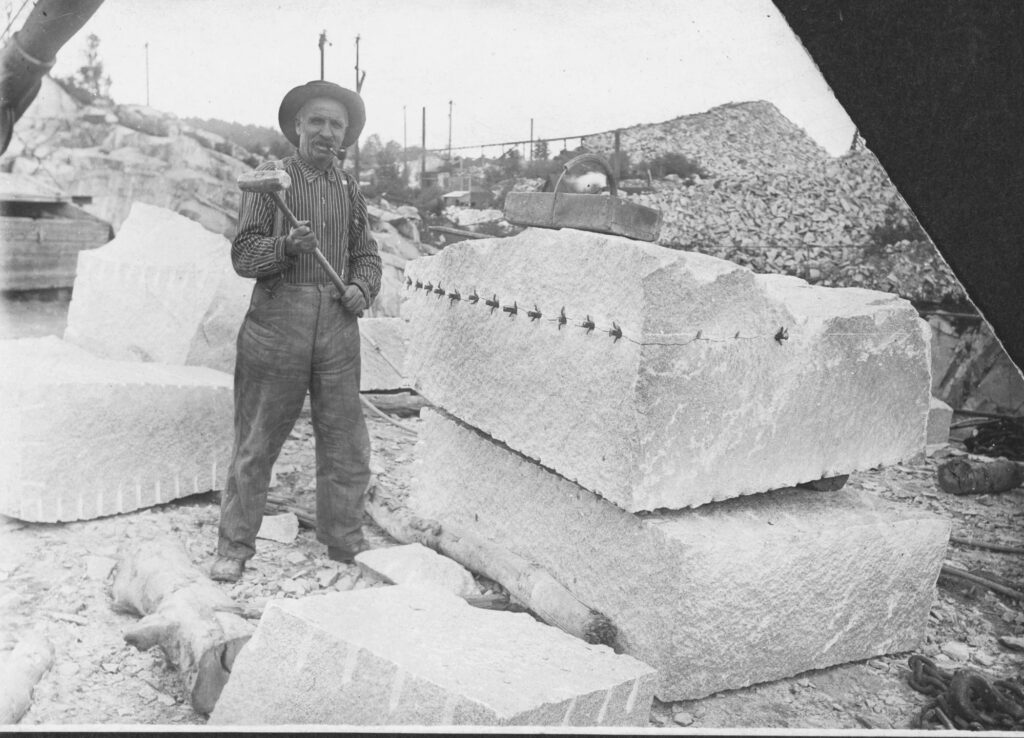
Applying the final hammer blows to split a large block using wedges and shims.
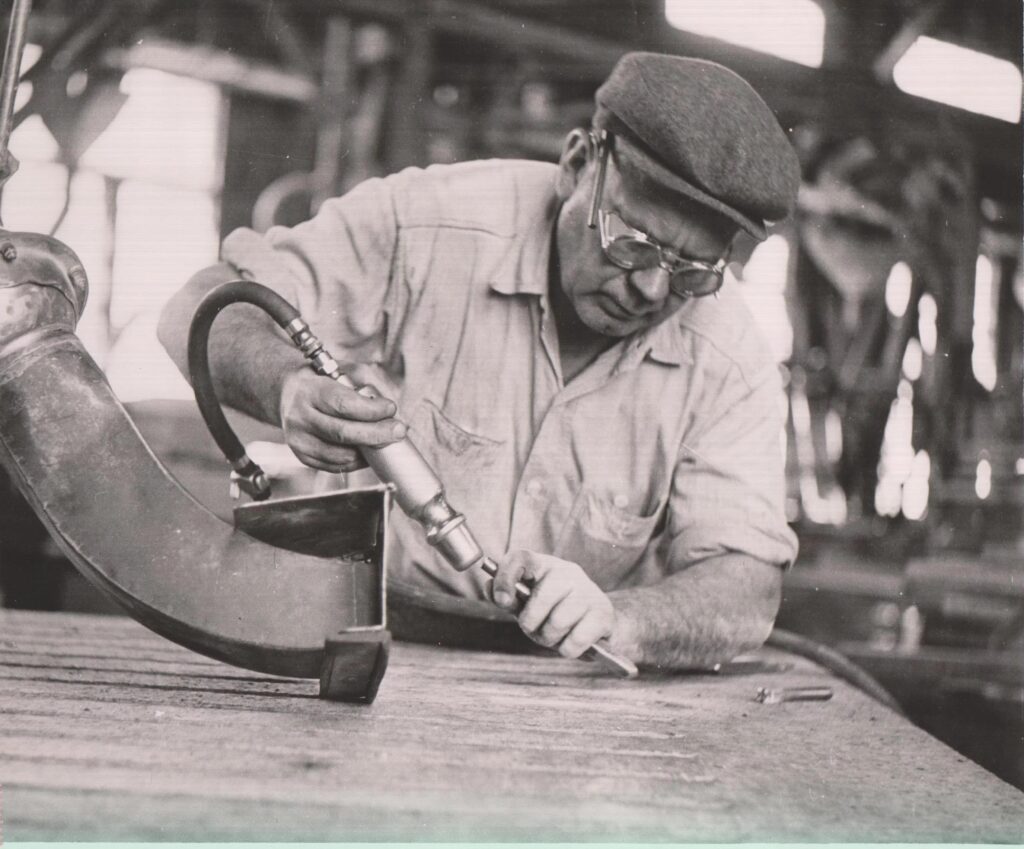
Swenson was a pioneer in using vacuum systems to collect granite dust during production.
Mergers with Rock of Ages, Polycor
One of the most consequential moves in Swenson’s 140-year history was its 1984 purchase of Rock of Ages. Merged with the Barre, Vermont-based company, Swenson became the largest quarrier and granite memorial manufacturer in North America.
A fellow New England company steeped in history, Rock of Ages was renowned for its skilled stone sculptors and Barre Gray granite. At a press conference announcing the deal, then President and Chief Executive Officer Kurt Swenson said, “Someone asked why we wanted to buy Rock of Ages. The simple answer is that we think Rock of Ages granite is the finest monumental grade granite in the world. In our 100-year history in the granite business, no other member of the Swenson family has ever publicly admitted that until today.”
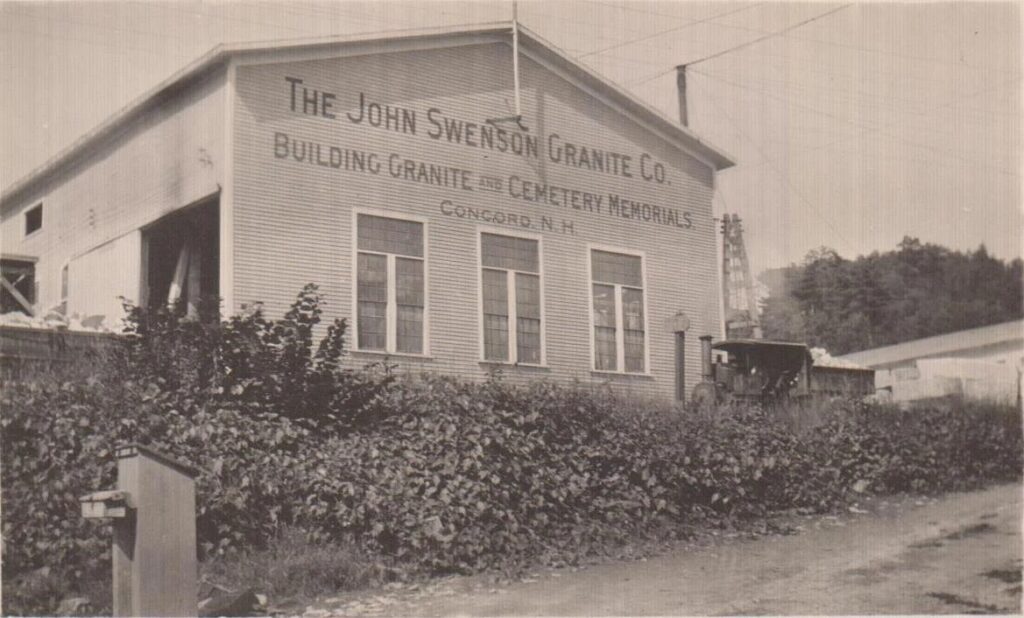
Early image of Swenson’s “shed #1” on North State Street in Concord. The building still stands today, serving as their retail operation.
One last merger would keep Swenson at the top of the hill. In 2016, Quebec-based Polycor announced the acquisition of Swenson and Rock of Ages, forming the premier marble and granite production group in North America and one of the largest worldwide. Today the conglomerate boasts 1,500 employees, 50 quarries, and many stores, factories and offices.
In 2023, Swenson announced it would offer customers access to the complete line of Polycor Hardscapes & Masonry natural stone products, which includes more granites, marble and limestone. To better reflect its expanded mission and business goals, the company changed its name from Swenson Granite Works to Swenson Stone Works.
Stores Open
The Rock of Ages deal brought Swenson full circle, as the company returned to manufacturing monuments as John Swenson did a century earlier. Swenson made another move focused on customers at the community level around this time, launching a retail operation with an initial Swenson Granite Works store at the base of Rattlesnake Hill.
“The merger with Rock of Ages started a new era for Swenson, not only by re-entering the monument market with the most well-renowned monument company but also sparking the idea for creating a retail division, which has flourished and continues to grow,” Duford said.
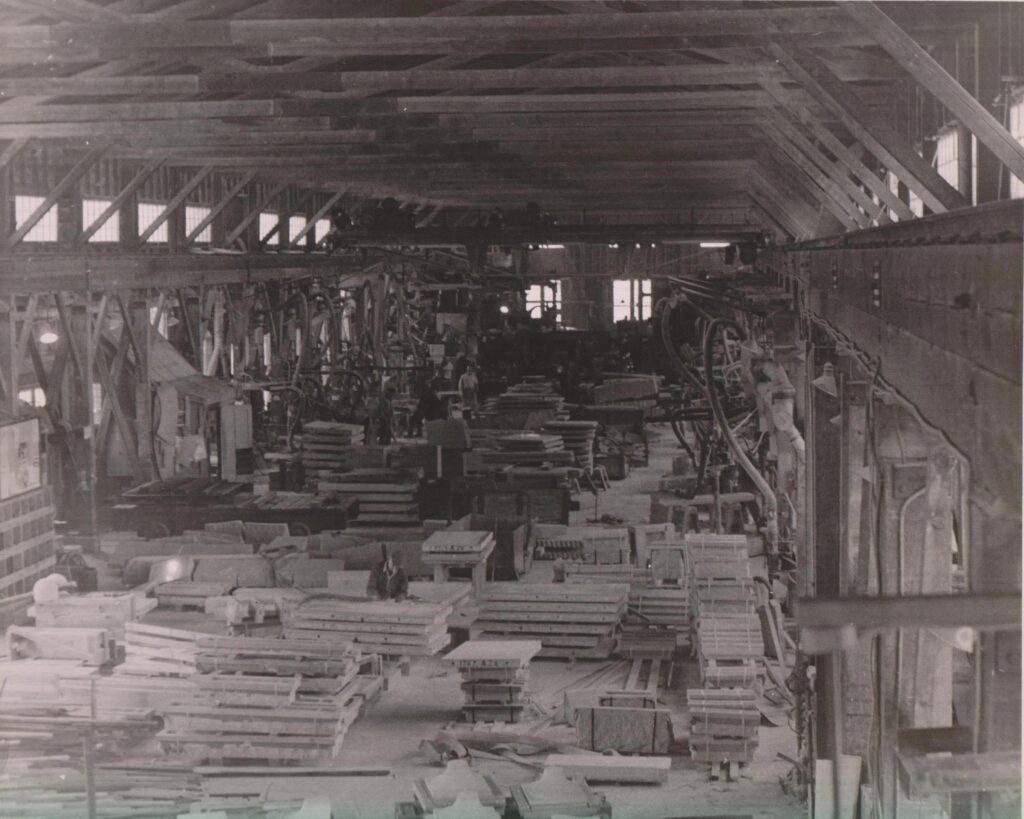
Granite slabs awaiting finishing in “shed #2” on North State Street in Concord.
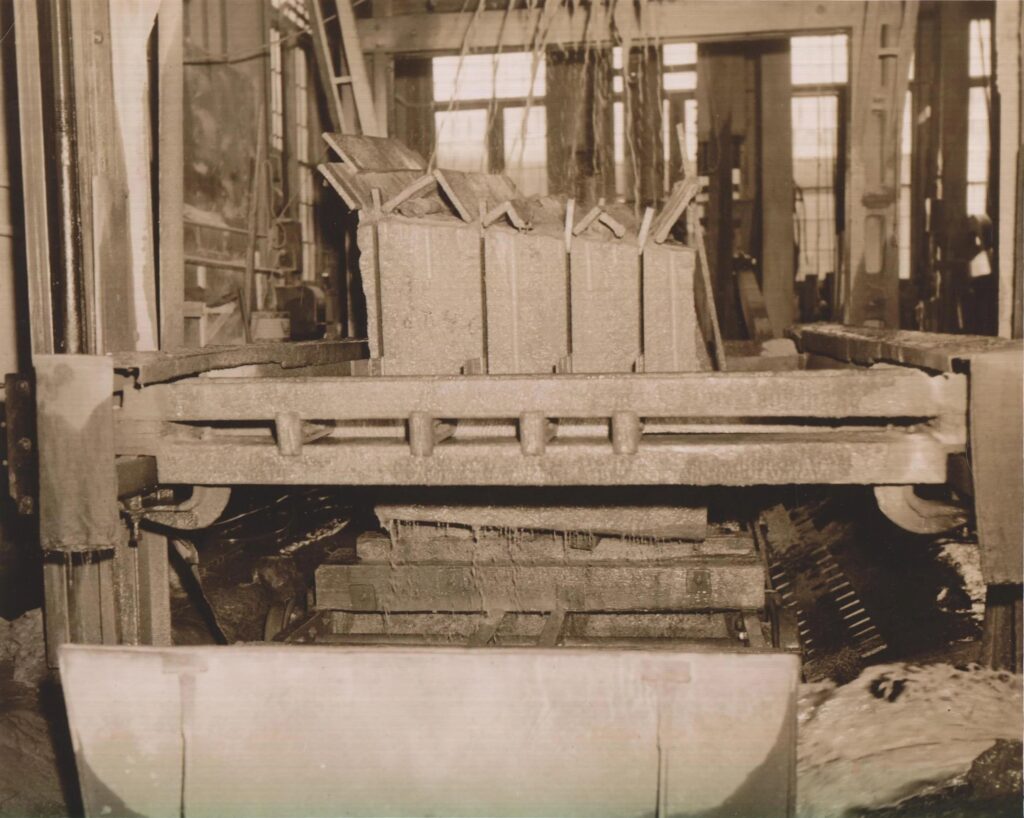
A “gang saw” making its final cut through a block to create multiple slabs simultaneously.
Today it has 10 locations in Amherst and Concord, New Hampshire; East Wareham, Hanover, Medway, Rowley, Shrewsbury, and South Hadley, Massachusetts; Newtown, Connecticut; and Westbrook, Maine. Customers can consult experts at these stores with product questions, see and touch materials, and arrange deliveries and installation of granite at their homes or businesses.
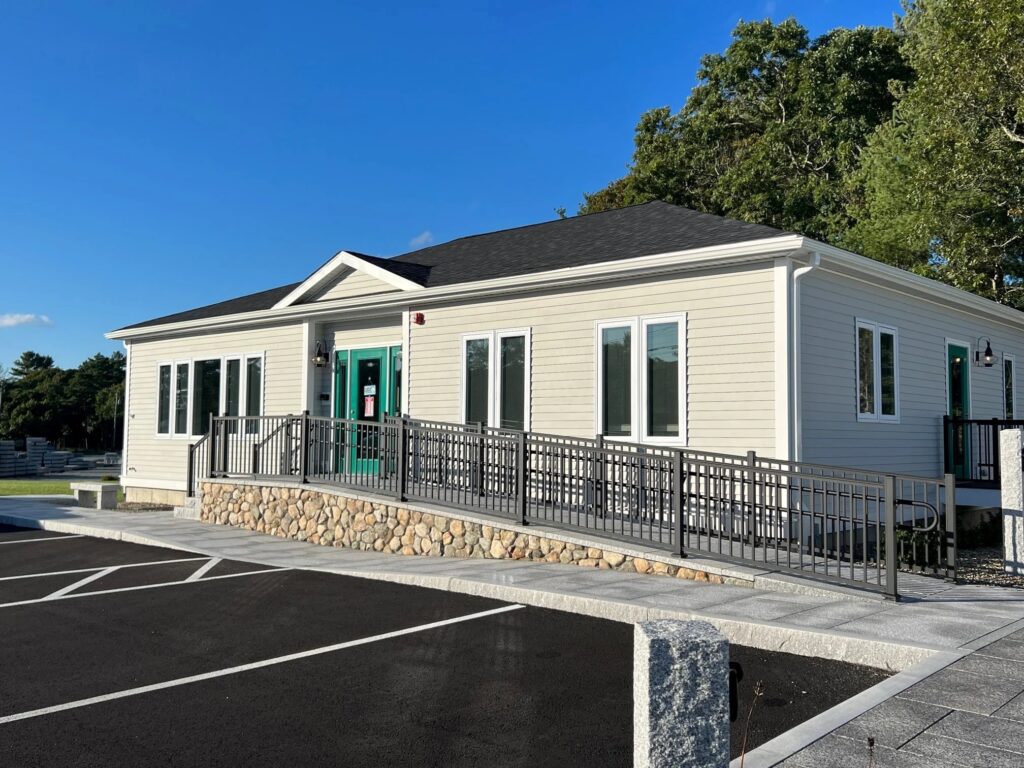
Swenson’s newest retail store in East Wareham, MA, opened in 2022.
The Westbrook store recently celebrated a milestone of its own, reaching its 30th year serving the community. Store Manager Jeremy Walbridge has been there since its opening and has seen the store’s impact on the community. Its stone can be found in local parks, school buildings, prominent businesses, and homes around Wesbrook.
“When we opened, most of our customers were homeowners and contractors working on smaller jobs, where you don’t usually see the finished product. But as we moved forward, some larger commercial and municipal jobs started to come through, and you began to see how our stone was making an impact around the area,” Walbridge said. “Sometimes, when I drive around town with friends or family, I like to point out the locations with our stone, and it has really added up over the years.”
